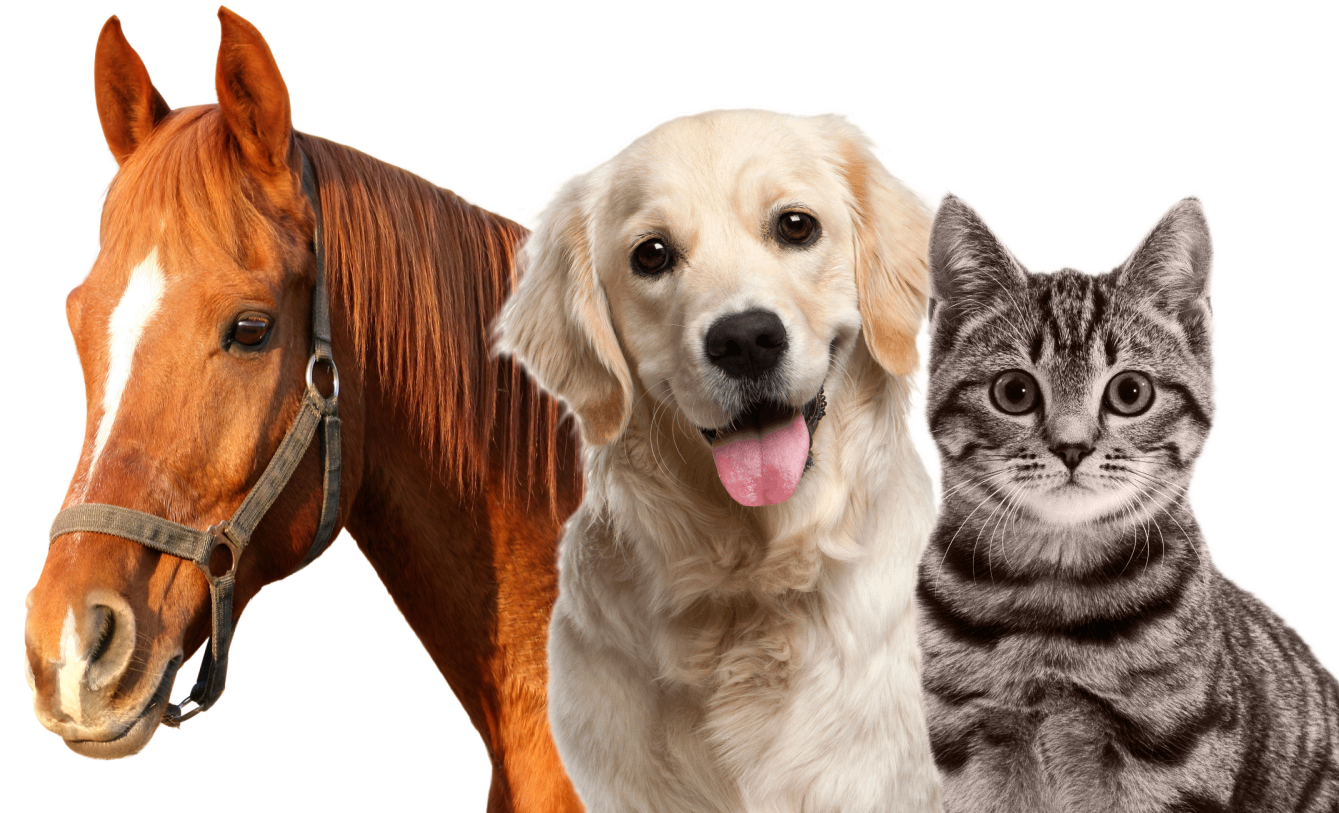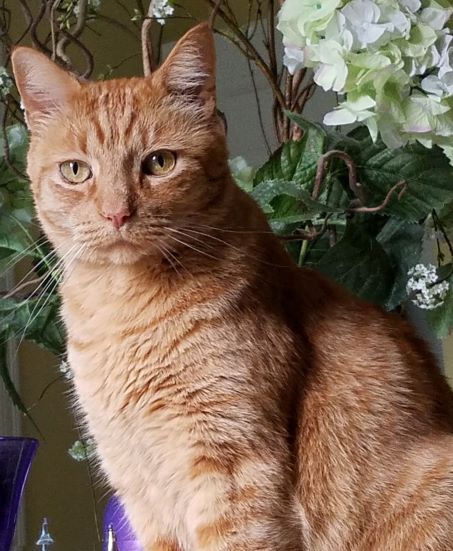
Aromatherapy is gaining in popularity and acceptance as natural alternative therapies for our animal friends
We all want the best for our furry friends, however the advice that we find via the internet, blogs, and social media may not always contain information that applies to safe use with animals. It is important to seek out a professionally trained aromatherapist and to communicate with your veterinarian (especially if your pet has any serious health issues) prior to undertaking any essential oil treatments.
Essential oils for dogs, horses and some other farm animals can be used topically for spot application, massage therapy and for skin and hoof/paw care. Using atomizer-diffuser units and spray mist bottles is used for inhalation therapy and clearing and infusing the environment.
Essentials oil use for cats is limited due to their sensitive metabolic system and their internal organs: the liver and kidneys do not breakdown certain substances due to lack of enzymes.
Essential oils for use with animals may include the following safe methods of application:
- Inhalation
- Diffusion (avoid use near fish tanks or any bird’s cage/area)
- Topical (spot application, massage therapy, bathing).

Mango
CFO at Elizabeth Essentials
Chief Feline Officer
Safety Precautions and Contraindications:
- Keep all essential oils and aromatherapy products out of reach of children and pets.
- Do not give essential oils internally to your pets/animal clients.
- Animals will often lick the area where essential oil blends/botanicals have been applied. This does not normally cause a problem – but watch to make sure that the animal does not have an allergic reaction or negative response. If they do, wipe the area with a cool wet cloth and diluted mild soap, rinse and repeat. If necessary seek immediate veterinarian assistance.
- Other and more serious clinical signs to watch for with your pet that can result from ingestion of essential oils are: vomiting, diarrhea, depression, lethargy, weakness, excessive drooling/salivation, mouth sores, seizures, tremors, increase in liver enzymes and temporary paralysis. (1)
- Do not get essential oils near or in the eyes. If essential oils accidentally get into the eyes or sensitive areas, flush the area with water or sterile saline solution until the area is clear. If water is not helping, try a bit of milk which will help to absorb the essential oil residue.
- Never apply essential oils directly to an animal’s muzzle area, inside nostrils, ears or mouth, or genital areas.
- Do not force essential oils onto animals by way of a head or muzzle mask breather-type device/gear.
- If irritation occurs (this can happen via topical, diffusion and inhalation) discontinue use of essential oils and re–evaluate. If animal has a coughing or breathing issue due to the aromas, remove the animal from the area and, if symptoms persist or get worse, contact your veterinarian.
- Do not apply essential oils neat (undiluted) to animals. Essential oils should always be diluted when applied topically to animals. Over-use of essential oils and neat applications can cause sensitization issues.
- There are certain essential oils that should not be used with animals: one in particular is tea tree (melaleuca alternifolia), which for some pets can cause poisoning and other serious health concerns (2, 3).
- Do not apply a controversial and unsafe technique called: Raindrop Therapy (RDT) to your animals. This and other ‘neat and excessive drops of essential oil type-applications’ can cause sensitization, severe allergic reactions, skin sensitivity, respiratory difficulties, dermal burns, toxic overload and other serious health concerns.
Remember: Less is best with essential oil use, do not be tempted to think that if it’s good, then more is better. This is especially true with sensitive animals: they are entrusting us to use essential oils safely and wisely. Always use the rule ‘when in doubt …don’t.’
When using essential oils within a barn or kennel type facility it is best to store aromatherapy products in aroma-safe containers and in a locked cabinet. Keep away from animals and children.
Be mindful of your fellow barn/stable/kennel mates and their animal friends. Remember that not everyone can tolerate the same aromas that you and your animals enjoy. Smell is unique to each individual and lavender is not loved by all!
References:
-
- ASPCA Animal Poison Control http://www.aspca.org/pet-care/poison-control/
- Pet Poison Helpline: http://www.petpoisonhelpline.com/poison/tea-tree-oil/
- National Capital Poison Center: http://www.poison.org/poisonpost/winter2010/teatreeoil.htm
Resources:
-
- Animal Poison Control Center: 1-888-426-4435
- Tea Tree Essential Oil-Toxic to Cats Article: http://www.messybeast.com/teatree.htm
- The Lavender Cat: www.thelavendercat.com
- NAHA (National Association for Holistic Aromatherapy) www.naha.org
- The Holistic Animal Association: www.holisticanimalassociation.com
Content provided from the: Animal Aromatherapy Practitioner Certification Course(sm): www.ashitherapy.com



Sorry, the comment form is closed at this time.